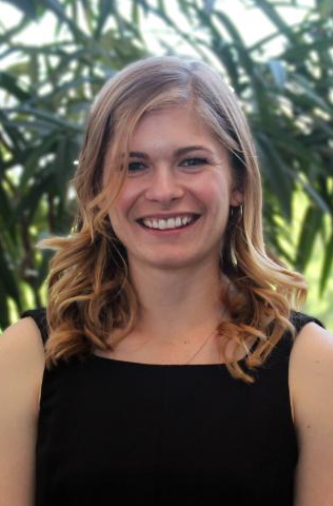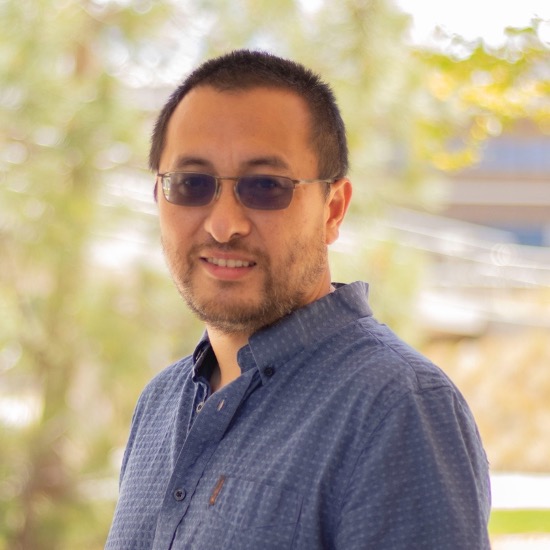2026 Program
Event: Prof. Kade Head-Marsden (University of Minnesota) and Prof. Wei Xiong (UCSD)
When: February 13th, 2026
12-1 PM EST
Registration Link
(to recevie the Zoom link promptly, even without being an APS member)

Early Career Talk: “Predicting relaxation in molecular quantum information science”
Prof. Kade Head-Marsden (University of Minnesota)
Biography:
Kade Head-Marsden is an assistant professor in the Department of Chemistry at the University of Minnesota. She completed her undergraduate degree in mathematics and chemistry at McGill University, and a PhD in theoretical chemistry at the University of Chicago with David Mazziotti. She was a postdoc at Harvard University before starting her faculty career at Washington University in St Louis in 2022. She moved her research group to Minneapolis in 2024, where they are continuing to focus on research at the intersection of open quantum systems, electronic structure, and quantum computing.
Abstract: Understanding spin dynamics is crucial to designing and optimizing molecular systems for use in emerging quantum technologies. At low temperatures, irreversible loss is facilitated by electronic-nuclear spin interactions. We develop combined open quantum systems and electronic structure theories capable of predicting trends in relaxation rates in molecular spins, and apply these theories to several molecular systems pertinent to contemporary quantum technologies. Our theories provide a framework to describe irreversible relaxation effects in molecular spin systems with applications in quantum information science, quantum sensing, molecular spintronics, and other spin systems whose dynamics are dominated by spin-spin relaxation.

Talk: “The role of energy disorder in polariton dynamics.”
Prof. Wei Xiong (UCSD)
Biography: Professor Wei Xiong is a Professor and Kent Wilson Faculty Scholar in the Department of Chemistry and Biochemistry at the University of California, San Diego. Wei received his B.S. degree from Peking University, China, in 2006. He then joined Prof. Martin Zanni’s group at the University of Wisconsin, Madison, and completed his Ph.D. degree in 2011. At Madison, Wei focused on developing novel 2D vibrational spectroscopy (transient 2D IR and heterodyne 2D SFG spectroscopy) to study molecules on solid-state material surfaces. Wei then moved to the University of Colorado, Boulder, in 2011, where he worked with Prof. Margaret Murnane and Henry Kapteyn to develop the table-top XUV source for ultrafast measurements and time-resolved photoelectron spectroscopy for nanoparticles. He joined the faculty at the University of California San Diego in 2014. At UCSD, Wei’s research focuses on using and developing ultrafast nonlinear spectroscopic and imaging tools to reveal molecular structures and dynamics of materials, including ultrafast dynamics of polaritonic systems, biological self-assembly, femtosecond charge transfer dynamics on organic material interfaces. Wei is a fellow of the American Association of the Advancement of Science and American Physical Society, a recipient of Sloan Research Fellow, Coblentz Award, National Brown Investigator Award, and Journal of Physical Chemistry C Lectureship, TRVS Young Investigator Award, and a finalist of the Blavatnik National Awards for Young Scientists.
Abstract : Mid-infrared (MIR) light interacts with molecules by selectively exciting specific vibrational modes. When combined with photonic structures, MIR fields can be engineered to address targeted vibrational states and thereby influence chemical reactivity. In the strong-coupling regime, these light–matter interactions form molecular vibrational polaritons, hybrid quasiparticles composed of both photonic and molecular character.
In this talk, I will describe how polaritons can modify molecular dynamics. Using two-dimensional infrared (2D IR) spectroscopy, we have shown that, in homogeneous chemical systems, strong coupling to tailored photonic environments can efficiently promote energy transfer within and between molecules, which in turn suppresses competing reaction pathways. However, most chemical systems are intrinsically inhomogeneous and exhibit substantial energetic disorder. We therefore investigated how disorder reshapes polaritonic states, and we identified a new criterion required for polariton-enabled energy transfer. We further validated this principle by examining polariton-mediated intermolecular energy transfer in disordered materials. Together, these results provide a mechanistic framework for designing photonic structures that reshape chemical energy landscapes and steer reaction pathways.
Attendees of any APS in-person or virtual events are expected to meet standards of professional conduct as described in the APS Code of Conduct. Violations of these standards may disqualify people from future participation.